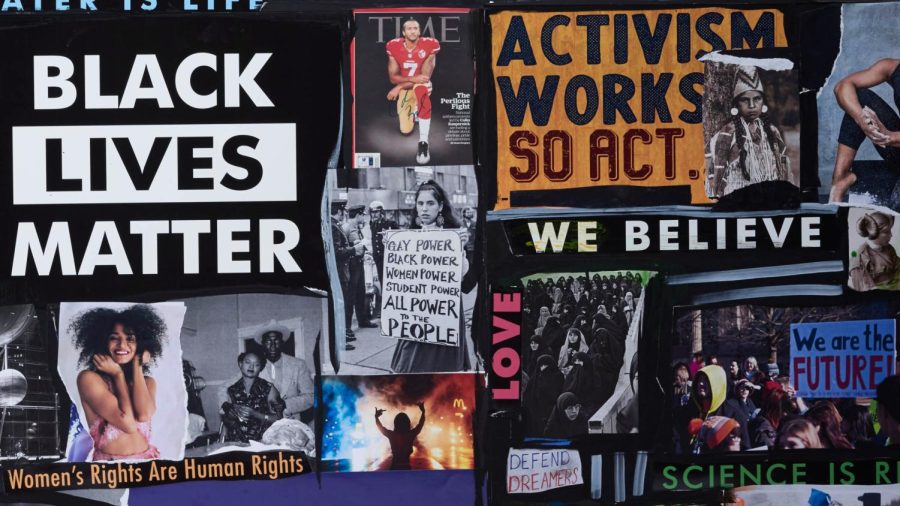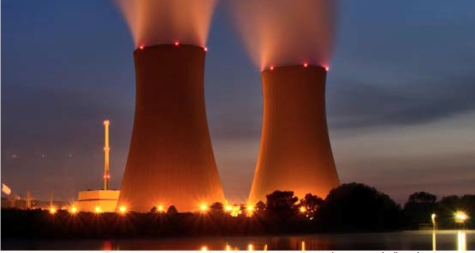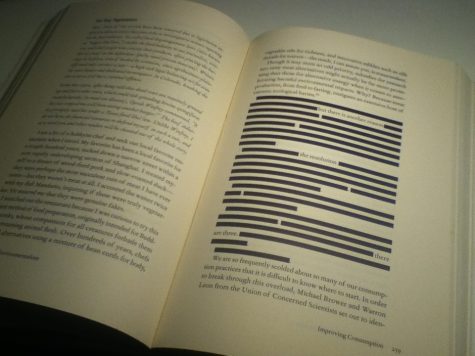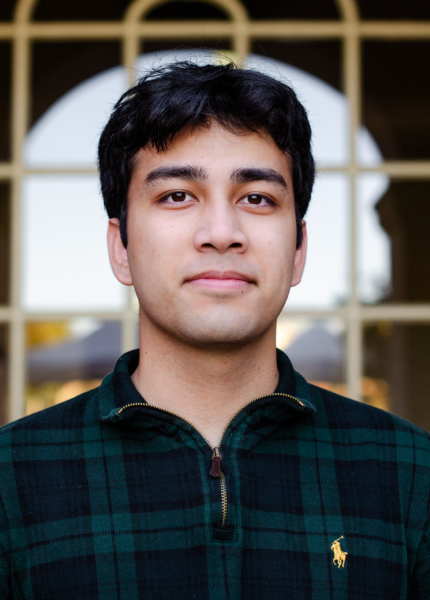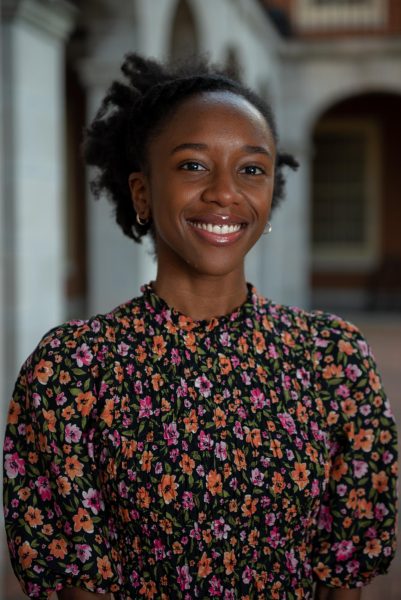Conversation analyzes social media activism
Students dispute the effectiveness of increased social media activism efforts as agent of change
The American political scene has changed drastically — in both positive and negative ways — because of significant media presence over the past few years.
Maryam Khanum: So, Breanna, having just passed the anniversary of the Capitol riots, I think we can all agree that social media activism has come to the forefront of conversations regarding political socialization and how media activism impacts real-life events. It’s definitely been used as a force of good in the past, but is that enough to offset the harm it brings?
Breanna Laws: A divisive question, for sure. I agree that the use of social media to spread a message can be harmful at times — especially if the message is false. In addition, many people feel almost overwhelmed by the amount of politics they are exposed to while on the Internet. However, I think that this is precisely what makes social media so useful. While it may not directly translate to impact on certain issues, it will always be in your face. You cannot avoid hearing about issues on the Internet, and I think that gathering attention will always be the first step to obtaining actual backing for an issue.
Really, I think the issue comes down to whether efforts being presented on social media are in good or bad faith. Performative activism is a huge issue in regards to social media activism spaces. An argument is that many of these spaces have become a place for privileged individuals to gain validation from their followers — would you agree with that?
MK: I can definitely agree with that. I think now more than ever — with the ongoing pandemic and its politicization — performative activism is on the rise. Influencers and celebrities are preaching the importance of wearing masks and social distancing while simultaneously attending massive gatherings and other super spreader events. In particular, we’ve seen TikTok influencers engage in this kind of hypocritical behavior. It’s indicative of how social media activism has largely contributed to the trivialization of serious topics.
Another concerning phenomenon I’ve noticed that has gained momentum alongside the rise of social media activism is the spread of misinformation online. Conspiracy theories regarding the 2020 presidential election are definitely some of the most prominent examples. They have been further fueled by the QAnon movement, which also gained credence through social media. Social media has definitely played a massive role in substantiating some of the biggest threats to American democracy.
BL: I think that it is interesting to watch how the political scene has changed so drastically because of significant media presence over the last few years. I definitely agree that it is threatening to democratic processes, especially since many Americans seem to prefer getting their political education from unaccredited sources. The spread of misinformation is increasing drastically, but I do not necessarily believe that it is inherently the Internet’s fault.
There are spaces online with valid and reliable information, but it is becoming increasingly more difficult to discover them. The truth is that the majority of social media apps use algorithm systems to distribute information. This is a dangerous thing on its own, as the concept of “echo chambers” becomes more prevalent, leading to a lack of education. It is not that the Internet does not provide correct information, but the fact that social media developers do not care about the education of their users — they care about profit. While I believe that many citizens wish to learn the truth, many are unsure how to find it.
Perhaps encouraging social media companies to further develop fact-checking technology would be the answer here. While many social media platforms have this technology, it is grossly underdeveloped. I recognize that there may always be those conspiracy theorists that cling to their ideals, despite fact-checking measures. Many of these people actually speak out against these measures. So, the advancement of this technology may be a double-edged sword. There is also the matter of whether fact-checking should be the responsibility of the social media platform itself or the individual that puts out the information.
MK: While I definitely think the addition of that technology would be beneficial to social media, I’m not so sure I agree with the purported impact of it. I think in the era of Coronavirus, we can observe how the unique phenomenon of politicization has impacted the way people perceive things. The problem is not a lack of information surrounding the virus, as we have institutions such as the CDC constantly using public forums to educate people on the true nature of the virus and working to dispel myths surrounding it. Despite this, we’ve seen the rise of a massive “anti-mask” movement among conservatives, with media outlets coining the term “the liberal pandemic”.
It’s hauntingly similar to many of the conservative movements surrounding the 2020 Presidential Election. Despite social media platforms such as Instagram and Twitter attempting to provide warnings with more accurate information regarding the outcome of the election, people continued to develop their own inaccurate conspiracy theories. As Adrian Bardon from Wake Forest’s philosophy department pointed out, we’re not observing an inability to access accurate information so much as an intentional inclination to disregard reliable evidence and facts. Social media still allows these inaccurate theories and harmful rhetoric to spread much faster and emboldens this conjecture in a dangerous way.
BL: I think it is often difficult for people who have found themselves in these conspiracy theory rabbit holes to branch out to other valid sources. After all, if you are conditioned to believe that one way of thinking is true, then you are inclined to avoid denying it. The way some people find themselves believing certain pieces of false information on the Internet can be for a variety of reasons — all of which are difficult to combat.
As you stated previously, there is a vast amount of valid information online that people can access. I agree that a sort of intentional ignorance is really the issue here. I wish I could be able to recall a time before social media so that I might be able to observe the way it has impacted people’s ability to grow their opinions. Perhaps, before the age of social media, people were more inclined to seek out the truth and were not as opposed to changing their perspective.
I will say that I have still seen this happen before. Conversations in comment threads have led people to change their minds. I have grown my opinion and changed my mind on certain topics due to what I was exposed to on the Internet. I truly believe that most people will change when they are exposed to factual information in a helpful way. Learning through social media is scary — there is a lot of misinformation, as we have discussed. However, regardless of anyone’s opinions, social media is here to stay. Moving forward, I think we should really focus more on trying to make these spaces as factually accurate and as hospitable as possible.
MK: Well, Breanna, I think we’ve done justice to the argument surrounding social media activism. I hope our discourse inspires people to think a little bit more deeply about the connotations of their online activism.
BL: I hope for the same thing, Maryam. Thank you so much for having this conversation with me.

Maryam is a senior from Karachi, Pakistan. She is majoring in political science with a minor in philosophy. Outside of OGB, she’s either listening...

Breanna is a junior from Wilkes County, N.C. majoring in communication and minoring in journalism and linguistics. Outside of the OGB, she is the vice...


